Punk Live Radio Stations
Radio Stations
- - 0 N - Deutsch Rock on Radio

- - 0 N - Gothic on Radio

- - 0 N - Gothic on Radio

- 0nlineradio ROCK

- 100% HARD ROCK

- 12punks.FM

- 12PUNKS.FM by rautemusik (rm.fm)12PUNKS.FM by rautemusik (rm.fm)
- 12XU

- 1431 ΑΜ

- 959 Nueve Cinco Nueve

- ALTARO RadioALTARO Radio
- Alternativeworld
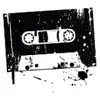
- antenARebel

- Banana SkaBanana Ska
- Black Tapes On Air

- CIA Radio

- CJSW

- DJ 666 Geordieblackcore

- DrGnu - 20th Century Rock
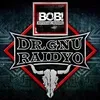
- Droogies

- Exclusively Ramones

- Fortschritt

- Fréquence MutineFréquence Mutine
- Fresh Rock

- Fresh Rock

- Fresh Rock

- FrogRadio Radio Station

- Guerrilla Radio

- IDA Radio

- idobi Radio

- JR Radio
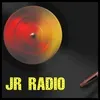
- Kamikaze RadioKamikaze Radio
- KB ROCKKB ROCK
- KrashboyZ BordeL Klub

- KXSF

- laut.fm Kakerlakenradio

- Laut.FM Raus
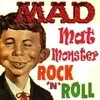
- Laut.FM Skafari
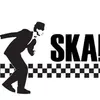
- Miled Music Punk

- NME 1
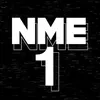
- No Records RadioNo Records Radio
- NoTypicalRadio - RockNoTypicalRadio - Rock
- OpenFM - Punk Rock
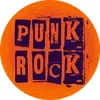
- OÜI FM AlternatifOÜI FM Alternatif
- Path through the Forest

- Polygon.FM - Punk's Not Dead

- PUNK IRRATIA

- Punk4all
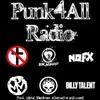
- Punkowe Radio UndergroundPunkowe Radio Underground
- PUNKRATZ

Choose a Genre
Punk Rock: The Sound of Rebellion
Punk rock, a genre that emerged in the mid-1970s, is known for its rebellious spirit, raw energy, and unapologetically loud sound. It is characterized by fast tempos, simple chord structures, and a DIY ethos that celebrates individuality and challenges mainstream culture. With its anti-establishment lyrics and audacious attitude, punk quickly became a movement, not just a musical genre, attracting a diverse and passionate following. Over time, punk has evolved, branching into several sub-genres, each adding its unique flavor while remaining rooted in the core principles of the genre: defiance, simplicity, and authenticity.
The Rise of Punk Rock
Punk rock arose as a reaction to the overly produced and commercialized music of the 1970s, offering an alternative to the mainstream rock and disco sounds dominating the airwaves. With its loud, fast, and straightforward sound, punk rejected the complex structures of other musical genres and embraced a back-to-basics approach, focusing on raw emotion, simplicity, and an uncompromising attitude.
Punk's sound is often marked by distorted guitars, fast drumming, and vocals that range from shouted anthems to sneering defiance. The lyrics frequently touch on themes of rebellion, social alienation, and dissatisfaction with authority, making punk a voice for disillusioned youth around the world.
Sub-genres of Punk Rock
Over time, punk evolved into several distinct sub-genres, each with its own interpretation of the genre's core values. These sub-genres helped expand punk's influence, drawing in new audiences while maintaining its anti-establishment edge.
Pop-punk: Emerging in the 1990s, pop-punk is a more accessible and melodic take on traditional punk. Known for catchy hooks, upbeat rhythms, and relatable lyrics, pop-punk gained massive popularity with bands like Blink-182, Green Day, and The Offspring. While still fast-paced and energetic, pop-punk tends to focus more on themes of relationships, love, and personal growth, making it a favorite for a younger audience.
Hardcore Punk: For those who crave an even more aggressive and intense sound, hardcore punk delivers fast tempos, heavy guitar riffs, and screamed vocals. Originating in the early 1980s, hardcore punk pushed the boundaries of punk's rawness, with bands like Bad Brains, Minor Threat, and Black Flag leading the charge. Hardcore punk is characterized by its high-energy performances and often confrontational lyrics, addressing themes like personal struggle, societal issues, and disillusionment.
Post-punk: Born in the late 1970s, post-punk is a more experimental and atmospheric take on the genre. While still rooted in punk's energy and spirit, post-punk incorporated elements of electronic music, art rock, and jazz, creating a more complex and cerebral sound. Bands like Joy Division, The Cure, and Siouxsie and the Banshees helped define this sub-genre, which emphasized mood, texture, and rhythm over speed and aggression.
Punk Radio: The Voice of the Movement
Punk radio stations serve as vital platforms for fans to connect with the genre, offering a curated selection of classic and contemporary punk music. These stations cater to a dedicated demographic—typically younger adults and long-time punk enthusiasts—who crave the high energy and rebellious spirit of punk. Whether you're tuning in for the latest pop-punk hits or hardcore anthems, punk radio stations provide a diverse listening experience, showcasing both established icons and up-and-coming bands.
Many punk radio stations feature knowledgeable DJs who delve into the history of punk and provide commentary on the music, offering listeners insight into the genre’s evolution and its impact on modern culture. These stations also serve as hubs for interviews with punk musicians, concert news, and updates on the latest releases, keeping fans informed and engaged.
The Legacy of Punk Rock
Punk rock’s influence on popular culture cannot be overstated. From fashion to politics, punk's DIY attitude and anti-authoritarian message have left an indelible mark on generations of fans and artists alike. Bands like The Ramones, The Clash, Sex Pistols, and The Dead Kennedys have shaped the sound and spirit of punk, inspiring countless acts across multiple genres.
Even as punk evolves and diversifies, its core values remain intact. Whether you're listening to the energetic anthems of classic punk bands or the melodic hooks of pop-punk, the rebellious spirit of the genre continues to resonate with listeners worldwide. Punk radio stations are crucial in ensuring that the movement remains alive and well, providing a platform for fans to stay connected with the music that defines their world.
The Future of Punk
Punk rock remains a vital and influential genre, with its energy and defiance still resonating with listeners around the world. The genre continues to evolve, blending elements of other musical styles while staying true to its roots of simplicity, rebellion, and social commentary. As long as there are listeners hungry for music that challenges the status quo, punk will continue to thrive.
Whether you're a longtime fan of classic punk, a newcomer to the pop-punk scene, or someone who loves the raw aggression of hardcore punk, there's a radio station out there to satisfy your musical cravings. Punk may have started as a movement, but today, it is a global force that continues to shape the sound of music and the spirit of resistance.
Punk rock, a genre that emerged in the mid-1970s, is known for its rebellious spirit, raw energy, and unapologetically loud sound. It is characterized by fast tempos, simple chord structures, and a DIY ethos that celebrates individuality and challenges mainstream culture. With its anti-establishment lyrics and audacious attitude, punk quickly became a movement, not just a musical genre, attracting a diverse and passionate following. Over time, punk has evolved, branching into several sub-genres, each adding its unique flavor while remaining rooted in the core principles of the genre: defiance, simplicity, and authenticity.
The Rise of Punk Rock
Punk rock arose as a reaction to the overly produced and commercialized music of the 1970s, offering an alternative to the mainstream rock and disco sounds dominating the airwaves. With its loud, fast, and straightforward sound, punk rejected the complex structures of other musical genres and embraced a back-to-basics approach, focusing on raw emotion, simplicity, and an uncompromising attitude.
Punk's sound is often marked by distorted guitars, fast drumming, and vocals that range from shouted anthems to sneering defiance. The lyrics frequently touch on themes of rebellion, social alienation, and dissatisfaction with authority, making punk a voice for disillusioned youth around the world.
Sub-genres of Punk Rock
Over time, punk evolved into several distinct sub-genres, each with its own interpretation of the genre's core values. These sub-genres helped expand punk's influence, drawing in new audiences while maintaining its anti-establishment edge.
Pop-punk: Emerging in the 1990s, pop-punk is a more accessible and melodic take on traditional punk. Known for catchy hooks, upbeat rhythms, and relatable lyrics, pop-punk gained massive popularity with bands like Blink-182, Green Day, and The Offspring. While still fast-paced and energetic, pop-punk tends to focus more on themes of relationships, love, and personal growth, making it a favorite for a younger audience.
Hardcore Punk: For those who crave an even more aggressive and intense sound, hardcore punk delivers fast tempos, heavy guitar riffs, and screamed vocals. Originating in the early 1980s, hardcore punk pushed the boundaries of punk's rawness, with bands like Bad Brains, Minor Threat, and Black Flag leading the charge. Hardcore punk is characterized by its high-energy performances and often confrontational lyrics, addressing themes like personal struggle, societal issues, and disillusionment.
Post-punk: Born in the late 1970s, post-punk is a more experimental and atmospheric take on the genre. While still rooted in punk's energy and spirit, post-punk incorporated elements of electronic music, art rock, and jazz, creating a more complex and cerebral sound. Bands like Joy Division, The Cure, and Siouxsie and the Banshees helped define this sub-genre, which emphasized mood, texture, and rhythm over speed and aggression.
Punk Radio: The Voice of the Movement
Punk radio stations serve as vital platforms for fans to connect with the genre, offering a curated selection of classic and contemporary punk music. These stations cater to a dedicated demographic—typically younger adults and long-time punk enthusiasts—who crave the high energy and rebellious spirit of punk. Whether you're tuning in for the latest pop-punk hits or hardcore anthems, punk radio stations provide a diverse listening experience, showcasing both established icons and up-and-coming bands.
Many punk radio stations feature knowledgeable DJs who delve into the history of punk and provide commentary on the music, offering listeners insight into the genre’s evolution and its impact on modern culture. These stations also serve as hubs for interviews with punk musicians, concert news, and updates on the latest releases, keeping fans informed and engaged.
The Legacy of Punk Rock
Punk rock’s influence on popular culture cannot be overstated. From fashion to politics, punk's DIY attitude and anti-authoritarian message have left an indelible mark on generations of fans and artists alike. Bands like The Ramones, The Clash, Sex Pistols, and The Dead Kennedys have shaped the sound and spirit of punk, inspiring countless acts across multiple genres.
Even as punk evolves and diversifies, its core values remain intact. Whether you're listening to the energetic anthems of classic punk bands or the melodic hooks of pop-punk, the rebellious spirit of the genre continues to resonate with listeners worldwide. Punk radio stations are crucial in ensuring that the movement remains alive and well, providing a platform for fans to stay connected with the music that defines their world.
The Future of Punk
Punk rock remains a vital and influential genre, with its energy and defiance still resonating with listeners around the world. The genre continues to evolve, blending elements of other musical styles while staying true to its roots of simplicity, rebellion, and social commentary. As long as there are listeners hungry for music that challenges the status quo, punk will continue to thrive.
Whether you're a longtime fan of classic punk, a newcomer to the pop-punk scene, or someone who loves the raw aggression of hardcore punk, there's a radio station out there to satisfy your musical cravings. Punk may have started as a movement, but today, it is a global force that continues to shape the sound of music and the spirit of resistance.